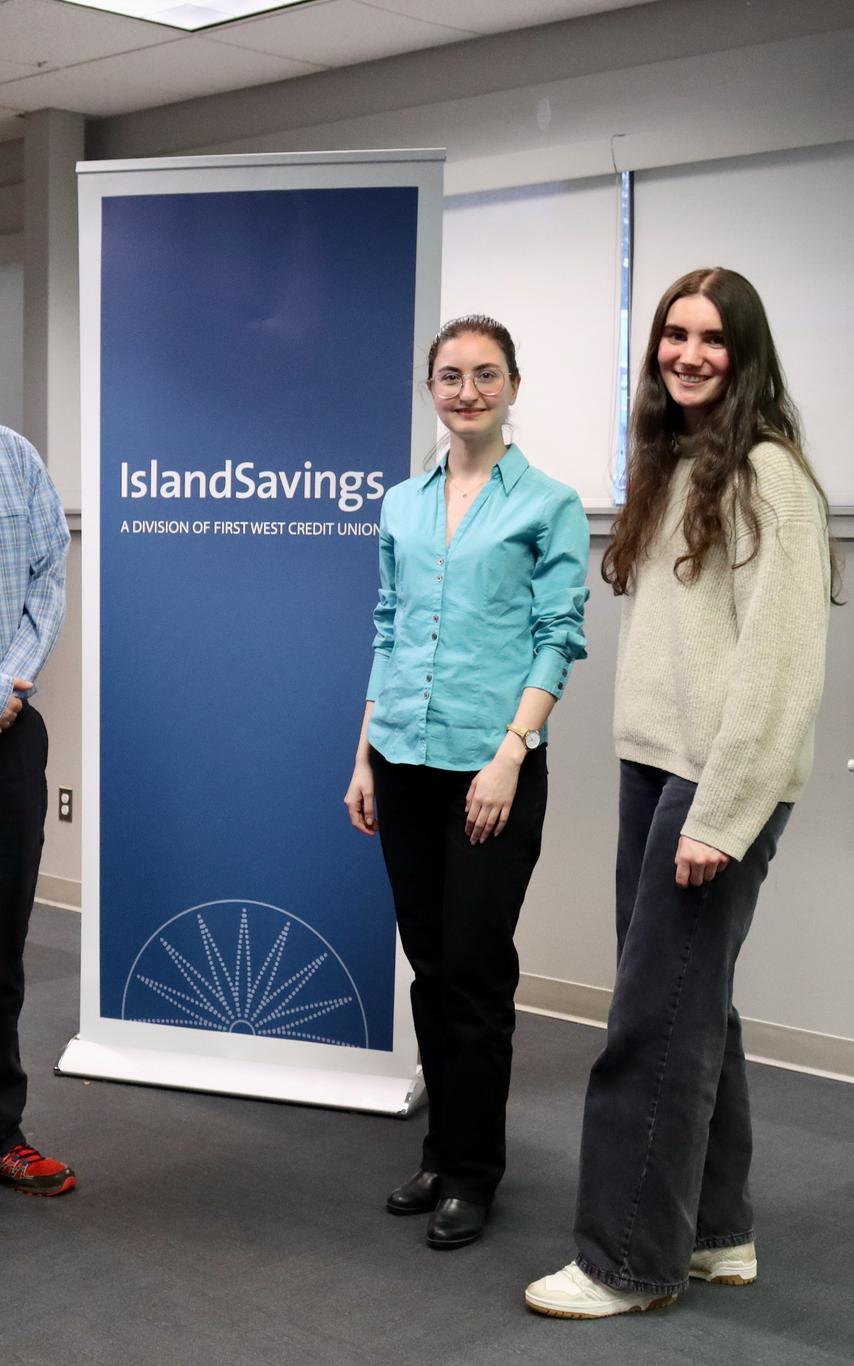Student research teams face off in the name of food security
Students from various programs across Vancouver Island University stepped up to do something about student hunger.
The Hunger Hack challenge, launched in February, encouraged students to think creatively about how to address the challenges of food insecurity on campus.
About a dozen students from different programs, many of whom had never met before, accepted the mission. Three teams were formed and each came up with an idea to improve food security on campus. The teams presented their concept to a panel of university, funder and external judges who gave each team $5,000 to pilot their innovative solutions over a five-week trial period.
At the end of the five weeks, the teams presented how they rolled out their plans, the challenges, how much they spent, what was the outcome and how they intend to keep it active after they have graduated. A panel of judges determined which idea would continue on until December 2025 with additional funding.
The hacks
Each team came up with very different solutions. The Food Fix team came up with a mini market where the team purchased snacks, produce and other food items that could be bought by students on a sliding market system. Students could either pay what they could for items or pay it forward, picking up the tab for another student.
The Hunger Busters created a kitchen equipment loan cupboard for residences to provide the resources needed for students to cook, such as an Instapot, an air fryer and a blender. They also organized a cooking class with the assistance of Nanaimo Food Share to teach students how to budget shop for food items, how to cook and how to pool resources between 10 students to create a few freezer meals in one session.
Team Full Bellies won the challenge, earning an additional $10,000 to carry on with the project. The team created a website, the VIU Food Security Club, with a goal to share the abundance of ways students could find help on campus to bolster their food security.
Connecting the dots
The Embark Student Foundation Major Grant Program and First West (Island Savings) provided the funds for the Hunger Hack challenge. Island Savings launched their signature cause, The Full Cupboard, in 2016, supporting 12 food banks on Vancouver Island. The initiative raised $765,889 – which is more than 1.5 million meals – and more than 18,142 pounds of food since its inception.
James Liston, Local Marketing & Community Investment Manager, said Island Savings sponsored the Hunger Hack because they want to include students in finding solutions to food security.
“We were very impressed by the quality of all the projects presented. Each team took a unique approach, which was interesting to see,” he says, adding the website was a great example of what they were hoping to see. “Oftentimes, it is the case that services are available, but people don’t know where to look. The Food Security Club did a great job in connecting the dots by directing students to existing events with food. The club has huge potential to grow by providing more advice and the fact they have already built the website is even more impressive.”
Full Bellies team spokesperson Kyle Wickland said winning the Hunger Hack was an incredible honour.
“With just five weeks and no prior experience in web development, our team took on a steep learning curve and came out on top,” he says. “We built a website that 98% of survey respondents found useful, and I couldn't be prouder of what we achieved together. This experience has been both challenging and rewarding, and I’m excited to keep the momentum going as we move forward with our next phase, powered by a new round of funding.”
The judges felt the two runner-up team ideas had merit and could still be provided with some funding, and potential mentorship to carry forward.
Raising awareness
Organizers of the student challenge consider the event a success as it helped to raise awareness about food insecurity among students and employees and provides a platform for students to contribute to meaningful solutions. Kendra Stiwich, Director of Graduate Studies and Student Research, and Cyrill Rohr, MBA Intern, were both impressed by the projects that students were able to bring to life in just five weeks.
“When we look back on it, what really stands out for us is the degree to which they were able to connect community, be that in a kitchen, on our campus, or virtually via websites and social media,” they said. “These projects were all about supporting fellow students, and that rests with all of us coming together as exemplified by these three incredible Hunger Hack teams.”




